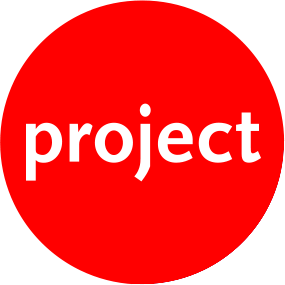Dublin Sound Lab presents Music Current Festival 2022
Join us for this exciting, immersive double bill with Maya Homburger & Barry Guy and be transported seamlessly through various musical styles. Experience new sound worlds!
Start the evening with LECTURE-RECITAL to learn all about the concept of “musical stretching” and then join us back in Project’s Space Upstairs for DUO, a stunning performance from Homburger and Guy that will take place within a special loudspeakers system designed to immerse both the audience and the performers in virtual acoustic spaces.
LECTURE-RECITAL | 6-7pm | Project Space Upstairs
This lecture concerning Maya Homburger (violin) and Barry Guy’s (double bass) concept and practice of “musical stretching” will give insight into their approach to performance and collaboration, and will demonstrate how they transport the listener seamlessly through various musical styles. They will also explain and demonstrate some of the extended techniques on bass and violin which create new sound worlds.
DUO | 8-9pm | Project Space Upstairs
Maya Homburger and Barry Guy join forces to present a programme of new compositions, improvisations and baroque masterpieces. Barry Guy is renowned as one of the most virtuosic and imaginative improvisers. He joins forces with Maya Homburger, whose interpretation of solo violin sonatas is inspired by his freedom and creativity.
Since they met on tour with the Academy of Ancient Music in 1988 and began working closely together, Barry Guy and Swiss-born baroque violinist Maya Homburger have been bringing their musical interests – and practice – closer together. Once distinct and separate, they now allow their respective musical backgrounds and approaches to spur and inspire each other.
In this programme, featuring works by H.I.F. Biber, J.S. Bach, György Kurtág and Barry, the Homburger / Guy Duo creates a conduit through which music from the 17th century and earlier can flow effortlessly into contemporary compositions and improvisations.
This performance will take place within a special loudspeaker system designed to immerse both the audience and the performers in virtual acoustic spaces. This system imposes new alternative acoustics on the performance space and can render a transparent and realistic sense of other acoustic spaces, such as historic buildings, natural spaces or even synthetic spaces.
Listeners interested in finding out more about the virtual acoustic loudspeaker system and invited to attend this workshop and demonstration .
* This loudspeaker-based virtual acoustic system was invented at Stanford University by Professor Jonathan Abel, Dr Eoin Callery, and Dr Elliot Canfield-Dafilou. It continues to be developed at Stanford University and at the Irish World Academy of Music And Dance in the University of Limerick.
Accessibility
You can find the latest information about Project’s accessibility here. Please do not hesitate to contact us at access@projectartscentre.ie or call 01 8819 613.
Credits
Artistic Director: Fergal Dowling
Audio production, Studio4 Lighting: Eoin Lennon
PR: Conleth Teevan
Social Media : Aoife Browne
Press
‘Dublin Sound Lab is doing an important job for those in Ireland who remain passionate about music in the post-war avant-garde lineage and who rarely get the opportunity to hear such ‘difficult’ music performed… …flying the flag in Ireland over the past decade for European modernism.’ Liam Cagney, Journal of Music, June 2016
‘One of the pleasures of Music Current is the subtlety and sophistication of the sonic manipulation.’ Michael Dervan, Irish Times, 3 May 2017
‘One of the finest electroacoustic ensembles on the island at present, Dublin Sound Lab.’ Bernard Clarke, Nova, RTÉ Lyric FM, 26 May 2013
‘Where we are at musically these days in terms of technology’ Liam Cagney, Musical Criticism, December 2009
Funding
Supported by the Arts Council, Art Mentor Foundation Lucerne, MidAtlantic Arts Foundation, Contemporary Music Centre, Goethe Institute & IMRO
